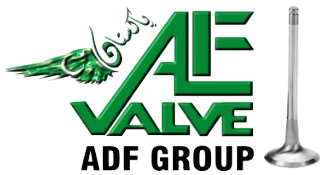GAAP vs IFRS: Key Differences in Accounting Standards
You may also see non-GAAP reporting in the same documents, which simply means that those pages are prepared using some kind of optional reporting that does not adhere to the GAAP rules.
US GAAP vs. IFRS: Key Differences and Global Impact
Therefore, firms adhering to the IFRS generally exhibit higher accounting quality than when they previously followed the GAAP. The main issues with convergence lie with the difference in the approach of the U.S. http://photodesigninterera.ru/dizajn-ofisa/chto-predstavlyaet-soboj-ibm-filenet-platform.html The IFRS is more dynamic and is continuously being revised in response to an ever-changing financial environment. IFRS, however, allows for the reversal of an inventory write-down if specific criteria are met.
IFRS Foundation Integrated Thinking and Reporting Conference
- Here’s where generally accepted accounting principles (GAAP) and International Financial Reporting Standards (IFRS) come in.
- Asset revaluation, the reassessment of a company’s asset values, plays a crucial role in funding replacement costs of assets at the end of their lifespan and providing investors with an accurate picture of the business.
- Our easy online application is free, and no special documentation is required.
- By furthering your knowledge of these accounting standards through such avenues as an online course, you can more effectively analyze financial statements and gain greater insight into your company’s performance.
- Both GAAP and IFRS require investments to be segregated into discrete categories based on asset type.
- IFRS does not prescribe a specific format for the income statement, allowing companies to choose the presentation that best reflects their operations.
Want to learn more about how Prophix supports GAAP and IFRS reporting standards? The principles ensure that financial reports are prepared in a manner that is understandable to people with a reasonable knowledge of business and economic activities. However, GAAP’s commitment to detail, accuracy, and consistency has helped maintain trust and transparency in the American business environment. Although we endeavor to provide accurate and timely information, there can be no guarantee that such information is accurate as of the date it is received or that it will continue to be accurate in the future.
- The guidelines are established by the Financial Accounting Standards Board (FASB) and will be present in the financial reporting of every publicly traded U.S.-based company you come across as a stock market investor.
- However, because of this, you’ve probably run into both GAAP and IFRS reporting, which may be a little confusing for you.
- Harvard Business School Online’s Business Insights Blog provides the career insights you need to achieve your goals and gain confidence in your business skills.
- The traditional business model in the automotive industry has gradually begun to shift from one-time purchases to continuous post-sale revenue.
- GAAP doesn’t allow companies to re-evaluate the asset to its original price in these cases.
- However, IFRS is more general, allowing recognition when the risks and rewards of ownership have been transferred, the buyer has control of the goods, and the amount of revenue can be measured reliably.
Impact of Convergence
In addition, IFRS requires separate depreciation processes for separable components of PP&E. However, adjusted EBITDA will be included in a separate reconciliation section rather than directly showing up on the actual income statement. The following differences outlined in this section affect what financial information is presented, how it is presented, https://milkywaycenter.com/concurs/zyps20001.html and where it is presented. While a loss is often permanent, the value of an asset may increase again if the impairing factor is no longer present. GAAP doesn’t allow companies to re-evaluate the asset to its original price in these cases. In contrast, IFRS allows some assets to be evaluated up to their original price and adjusted for depreciation.
Presentation of financial statements
The rules of GAAP do not allow for an asset’s value to be written back up after it’s been impaired. IFRS standards, however, permit that certain assets can be revaluated up to their original cost and adjusted for depreciation. Deciding which set of standards to use depends on whether your company operates in the US or internationally. Work is being done to converge GAAP and IFRS, but the process has been slow going. For professionals in non-accounting roles, understanding what’s behind an organization’s numbers can be immensely valuable. Knowing how to analyze financial statements can improve your ability to communicate results and boost collaboration with colleagues in more numbers-focused positions.
Another reason why U.S. companies are resistant to converging the GAAP with the IFRS is the prevailing opinion that the principles-based IFRS fails to offer guidance compared to the rules-based U.S. standards. As a result, U.S. accounting professionals and corporate management perceive the IFRS to be lower quality than the GAAP. GAAP distinguishes between operating leases and capital leases, while IFRS classifies all leases with a lease term of more than 12 months as finance leases unless the asset is of low value. IFRS has a more stringent approach to intangible asset recognition and allows for the revaluation of certain intangibles. GAAP, on the other hand, has more specific rules and does not allow for revaluation. In-depth analysis, examples and insights to give you an advantage in understanding the requirements and implications of financial reporting issues.
Referred to as ‘Provisions’ under IFRS, contingent liabilities refer to liabilities for which the likelihood and amount of the settlement are contingent upon a future and unresolved event. Generally, IFRS is described as more principles-based whereas US GAAP is described as more rules-based. While there are examples to support these descriptions, there are also meaningful exceptions https://francite.ru/langue/langue-et-nous/le-franglais.html that make this distinction not very helpful. For publicly-traded companies in the US, these rules are created and overseen by the Financial Accounting Standards Board (FASB) and referred to as US Generally Accepted Accounting Principles (US GAAP). We expect to offer our courses in additional languages in the future but, at this time, HBS Online can only be provided in English.
